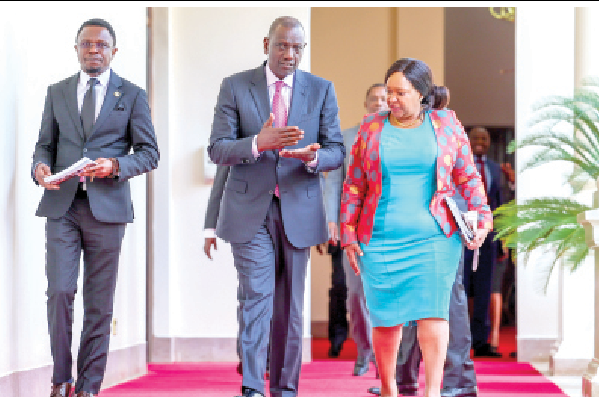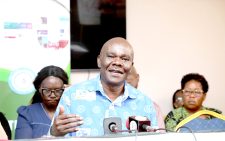Energy ministry on the spot as Cabinet meets

The Ministry of Energy has been directed to comprehensively deal with the challenge of power failure.
President William Ruto, who chaired the Cabinet meeting on Wednesday, said frequent power outages were hurting Kenya’s investment profile.
The Cabinet discussed the matter extensively and resolved that the transmission line system should be unbundled so that power failure in one part does not affect the entire country.
The meeting came on the day a TIFA poll rated the Energy Cabinet Secretary, Davis Chirchir, as the worst performing in the Cabinet with 19 per cent approval rating.
He was followed by his Gender counterpart, Aisha Jumwa, with 23 percent while National Treasury CS Njuguna Ndung’u, Water CS Zach Njeru and Lands’ Alice Wahome tied with 24 per cent.
Chirchir has come under fire in recent weeks for his handling of the high cost of fuel and the frequent countrywide blackouts.
Last month for instance, he sparked national outrage when he warned that the cost of petrol would shoot to as much as Sh300 per litre owing to the crisis in the Middle East pitting the Israeli forces and Palestine militant group, Hamas.
His statement came on the same day Tanzanian president Samia Suluhu Hassan announced a reduction of the fuel prices, ironically, citing lessening hostilities between the two groups.
ADB funding
To deal with overloading of transmission lines that causes outages, the Cabinet resolved that the Bomet-Narok line will be built with $250 million (Sh37.5 billion) from the African Development Bank.
The line, which was funded in 2016, has not been built due to legal disputes. Additionally, a $57 million (Sh8.55 billion) KenGen solar power project at the Seven Forks Dam will provide a safeguard against power failure.
The 42MW project has a huge battery storage and when power fails, the stored energy kicks in.
Additionally, the project helps to save hydro-power at the five dams that make up the Seven Forks.
The Cabinet was informed that negotiations on the Kenya-European Union Economic Partnership
Agreement have been completed. This is expected to be signed next week. The agreement, giving Kenya more access to the European Union market, will also be taken to Parliament for ratification.
The agreement is the most ambitious European Union deal with any African country in terms of climate protection and labour rights.
The agreement has been long in coming, with the negotiations having started in 2002. In 2016, efforts to have the East African Community countries sign together failed.
On El Nino rains, the Cabinet was also briefed on the response. The government’s response in mitigating the effects of floods was commended for being well-coordinated and effective.
The National Government has worked with counties, the Kenya Red Cross and other humanitarian organisations to provide food, rescue and relocate displaced people.
The Cabinet was also informed that Comesa has once again extended Kenya’s sugar import quotas, which were ending this year. However, this is the last time the extension will be given.












